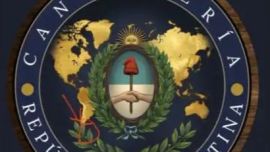Since that shock at the end of 2014, when Argentina’s Intelligence Secretariat was disbanded, the federal agency that replaced it has not been able to regain the muscle of its predecessor. Massive lay-offs, constant renovations, changes in administration and a fear of empowering spies has led different governments to relegate the role of the Agencia Federal de Inteligencia (AFI), often putting a little-known official with no experience at the helm and in a temporary capacity. The last three heads of the institution all share those characteristics.
Throughout its history, the intelligence area has always been in the hands of people the sitting president trusts the most, not only because of the sensitivity of the information handled, but also because of the economic resources the agency has at its disposal. The AFI has a secret budget that can be executed in a discretionary manner.
During President Alberto Fernández’s administration, the custom has been discontinued and the AFI has become a marginal institution with almost no resources. Its chiefs have almost no relationship with the President. And much less, political gravitas.
Today, at the head of the spy house is 38-year-old Ana Clara Alberdi, who was presented on February 16 by the president himself. The communiqué issued at the time only highlights two paragraphs of her CV, which includes her degree in Political Science from the University of Buenos Aires, a postgraduate degree in Public Policy from the Torcuato Di Tella University (which she has not yet completed), and her career history. She has previously been at the side of Cabinet Chief Agustín Rossi, who left her in charge of the intelligence services when he took on his new post.
Rossi's appointment in the role, following the departure of Juan Luis Manzur, triggered a series of events that eventually led to the reaction of Carmela Moreau, a Santa Fe leader who served as an advisor to the previous Cabinet chief. Moreau, who was previously in a relationship with Rossi for two years, resigned with a letter that featured stinging criticism of the current administration, but there was a feeling that she was leaving because of the way her romance with her previous partner had ended. She had no intention of working under Rossi.
In subsequent interviews, Moreau also questioned Alberdi, the new AFI head. "I openly do not agree with the person who has been put in charge of the AFI because she does not have the suitability, management capacity or track record to be in charge of the Federal Intelligence Agency. It is irresponsible,” she declared.
Moreau also highlighted how Alberdi had begun working as Rossi's private secretary and continued with him for the following 15 years, supporting him through a range of political appointments, such as the ruling party caucus chief in the Chamber of Deputies, as defence minister, and then as his second-in-command within the AFI.
History
Ana Clara Alberdi was born in a town called San Gregorio, in the south of Santa Fe, where her father is a well-known political leader. She is known there as the daughter of ‘Vasco’ Alberdi and, thanks to this familial political activism, she forged a strong political bond with Rossi. When she was in her final years of university, Rossi arrived in Buenos Aires as a national deputy, and a few years later she began to work with him, following him from portfolio to portfolio.
Today, the Federal Intelligence Agency has no major activities beyond paying the salaries of its agents. The government’s intervention in its running continues and there is no possibility of normalising its functioning.In other words, the agency is in a state of lethargy. It does not invest in technology, there is no collaboration with foreign agencies and it does not stand out for relevant investigations. The attempt on Vice-President Cristina Fernández de Kirchner's life was not foreseen, there is no idea how to deal with the advance of drug-trafficking into Argentine territory and there is no real record of the infiltration of Russian agents into the country. The only internal sector that is being favoured is that of La Cámpora, headed by the Counter-Intelligence Chief Esteban Carella who, after the departure of ex-AFI trustee Cristina Caamaño, gained a little more power.
Caamaño's administration recorded no major achievements beyond some activities with human rights organisations, and Rossi's brief interim leadership of the organisation caused some clumsiness, such as promoting an activity that would award medals to retired agents, almost exposing the identity of former spies in the process. He also relaunched a magazine that was produced at the Escuela de Inteligencia.
Now, among the activities promoted on the AFI website, is the release of the second issue of the magazine. Apparently, there is little work to do.






















Comments